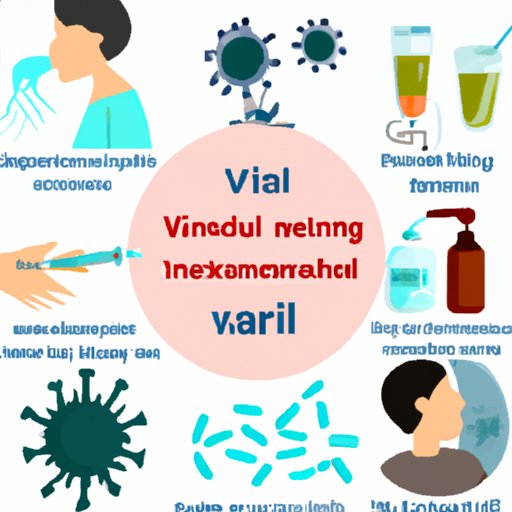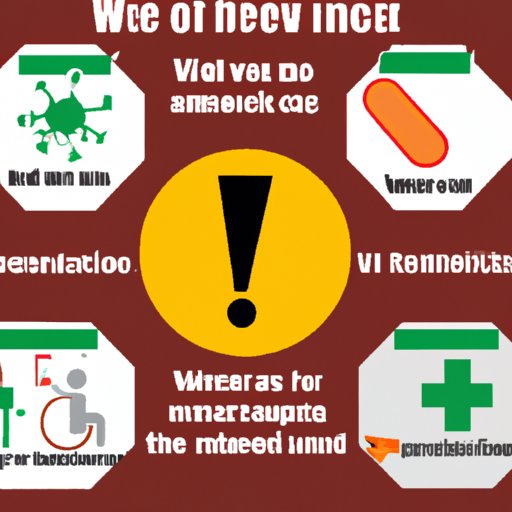
I. Introduction
Viral infections are common and can affect anyone at any time. Whether it is the flu, a cold, or a gastrointestinal virus, it is important to know how to treat viral infections properly to minimize symptoms and prevent complications. This article will explore natural remedies, antiviral medications, the importance of rest and hydration, preventative measures, home remedies, and when to seek medical attention for viral infections.
II. Natural Remedies for Viral Infections: Boosting Your Immunity
The immune system plays a crucial role in fighting off viral infections. Natural remedies can help boost the immune system and alleviate symptoms. Vitamins, herbs, and foods, such as garlic, ginger, echinacea, vitamin C, and zinc can help improve immune function. Incorporating these remedies into a healthy lifestyle by eating a balanced diet, exercising regularly, and getting sufficient sleep can help improve the body’s ability to fight off infections.
III. Antiviral Medications: How They Work and When to Use Them
Antiviral medications are effective in fighting viral infections, but they are not always necessary. Different types of antiviral medications are available, including neuraminidase inhibitors, nucleoside analogues, and protease inhibitors. These medications are commonly prescribed for influenza, herpes, and hepatitis. It is essential to seek medical attention to diagnose the viral infection properly and to receive appropriate treatment.
IV. The Importance of Rest and Rehydration in Treating Viral Infections
Rest and hydration are crucial elements to healing and treating viral infections. Getting plenty of sleep and drinking fluids like water, tea, and broth can help flush out toxins and support the immune system. Taking care of oneself during illness by avoiding overworking, taking sick leave if necessary, and avoiding alcohol and caffeine can also help speed up the recovery process.
V. Preventative Measures for Viral Infections: Simple Ways to Stay Healthy
Preventing viral infections is the best defense against developing an illness. Simple, everyday steps can help people avoid contracting and spreading viral infections. Regular handwashing with soap and water, avoiding close contact with sick people, and healthy lifestyle habits such as exercise and eating a balanced diet are some examples. Vaccines are also available for those who would like an added layer of protection.
VI. Home Remedies for Symptom Relief of Viral Infections
Symptoms associated with viral infections such as fever, coughing, and congestion can be uncomfortable. Home remedies can help alleviate these symptoms, making the recovery process more tolerable. Using a humidifier, taking over-the-counter pain medications, drinking warm beverages, gargling with salt water, and using steam inhalation are some remedies that can help. While these remedies can provide relief, it is essential to consult with a doctor to ensure proper treatment.

VII. When to Seek Medical Attention for Viral Infections: Warning Signs to Watch For
While most viral infections are self-limiting and do not require medical attention, some infections can be serious, and prompt evaluation is necessary. Warning signs include high fever, difficulty breathing, chest pain, confusion, and severe dehydration. Elderly individuals, immunocompromised individuals, and young children are at higher risk of developing complications from viral infections. It is crucial to seek emergency medical care for severe symptoms
VIII. Conclusion
Viral infections are common, and it is essential to know how to treat them properly. Incorporating natural remedies, taking antiviral medications when necessary, resting and staying hydrated, and practicing preventative measures can help speed up recovery and reduce the spread of infections in the community. It is also essential to know warning signs to watch for and seek medical attention promptly if necessary. With proper care and attention, individuals can recover from viral infections quickly and resume their daily activities.




